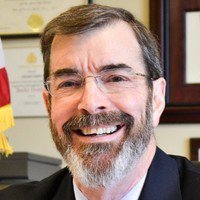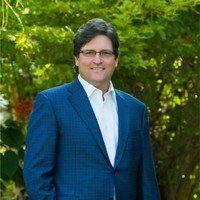As E&P previously reported, the recent reversal on public notice legislation in Florida was dramatic to watch and demoralizing for the stakeholders who’d invested an untold number of hours meeting with and lobbying state legislators, only to see the culmination of those efforts “overruled” a mere 68 days later.. (Florida legislators put news publishers — in the state and beyond — on notice).

We do believe, after two months the HB 35 bill was actually in effect, we’re finding it’s working, as we’ve seen an 11% increase in new players getting in the game, which is creating more competition and driving down the costs of government agencies running public notices,” Jim Fogler, president and CEO of the Florida Press Association told E&P in an email following the vote on the newly adopted HB 7049.
Fogler explained what the changes would mean for how public/legal notices work in Florida: “The main thrust is that the bill is basically the same, with one change in the amendment. That change allows free newspapers to continue to place the ads in them, as long as they meet the audience thresholds contained in last year’s bill. Newspapers that have a periodicals permit can also run them.
“The bill, though, retains the bad language that ‘government agencies’ may opt to use the county’s official website (or other private website designated by the county) to publish legal ads. There’s also nothing in the bill that shines a light on these legal ads published on government websites, as they will not be included on our FloridaPublicNotices.com aggregated site,” he continued. “The bill retains the language that governmental agencies in smaller counties (under 160,000) may use the .gov website if they have a hearing regarding broadband availability.”
Fogler was E&P Publisher Mike Blinder’s guest on "E&P Reports," recorded in the aftermath of Florida HB 7049’s passage. They were joined by Samuel Morley, general counsel for the Florida Press Association; Don Craven, president and CEO, Illinois Press Association; Brad Thompson, chairman and CEO of Detroit Legal News Co.; Bill Barker, founder and CEO, Barker Strategic Solutions (and past regional president for Gannett Florida); and America’s Newspapers’ CEO Dean Ridings. They came together to talk about what happened in Florida, what it may mean to how public notices are published in other states, and why lobbying legislators is particularly arduous these days.
During their conversation, Dean Ridings, CEO of America's Newspapers, said, “As Florida makes this step, other state legislatures will watch, and if there isn’t an eruption, they will be emboldened to take the same step.”
 Brad Thompson, who also serves as the president of the Public Notice Resource Center,
Brad Thompson, who also serves as the president of the Public Notice Resource Center,
concurred that the setback in Florida might have ripple effects in other states. "Is it going to be the dominoes falling? It's terrifying in that respect," he said.
But the case in Florida wasn’t intriguing purely from a legislative perspective. It was also a fascinating study of how news owers' austerity measures have changed the way newspapers lobby and communicate with legislators.
 Getting legislative buy-in to Florida HB 35 was a concerted effort that required communication and compromise, Bill Barker recalled. They found legislators who wanted to “work in a serious way” to craft legislation that would best serve the citizens of Florida.
Getting legislative buy-in to Florida HB 35 was a concerted effort that required communication and compromise, Bill Barker recalled. They found legislators who wanted to “work in a serious way” to craft legislation that would best serve the citizens of Florida.
“Our job is to take care of the citizens of Florida, whether it’s to keep them informed so that they can watch out for themselves and hold their government officials accountable, or whether it’s working with the government officials to get accurate and credible information to the public so they can make those decisions,” Barker said.
“We took on the responsibility to meet with the leadership of both chambers before sessions every year for the last couple of years, to try to develop relationships with those leaders, so they knew we were human beings — we were Floridians, and we cared about the state of Florida,” Barker added. “And that had a big impact. … I believe people both in the elected space and both in the media space agreed that we came to a very good landing place.”
Samuel Morley, general counsel for the Florida Press Association, suggested that the diminished relationships between news publishers and legislators may be partly to blame. He explained that the publisher position at news organizations was an essential role for centuries, and yet in recent years, austerity measures have seen those positions decline. Morley witnessed this in Florida, where corporate or chain owners consolidated to regional publishers or simply did away with the role altogether.
Why does this matter? Well, a publisher wears many hats, and two of those are to represent the news organization's interests — in this case, lobbying around public notices. Traditionally, they’ve also had the responsibility of cultivating relationships with local officials and lawmakers so that when they must cooperate, as in the case of communicating critical public safety information, there is an established relationship — even if that relationship is strained by newsroom coverage of those same officials. In fact, that relationship must come from a representative of the news business; it can’t be done from the newsroom.
 Dean Ridings, CEO at America’s Newspapers, has seen a power shift due to fewer publishers at the top of mastheads. Even publishers at small community newspapers had a certain level of power in that they knew their local officials and could get an audience with them to talk about issues important to the community. They still towed an ethical line, Ridings explained, but there was a sense of mutual respect that made that communication possible.
Dean Ridings, CEO at America’s Newspapers, has seen a power shift due to fewer publishers at the top of mastheads. Even publishers at small community newspapers had a certain level of power in that they knew their local officials and could get an audience with them to talk about issues important to the community. They still towed an ethical line, Ridings explained, but there was a sense of mutual respect that made that communication possible.
“Due to the economic challenges facing the industry, we’ve seen that so many companies have changed the lines of responsibility,” Ridings said. “So, it's resulted in a structure that no longer supports the traditional publisher position. That has created challenges for all of us because, without someone in that senior leadership role, whose work is well-known in the community, it’s very hard to have a relationship with the legislators. I think it’s a very difficult position to put your editor in, and, you know occasionally, we’ve seen that, but that just really doesn’t work.”
However, editors and reporters do have some stake in the plight of public notices. That revenue derived from them helps to fund journalism, and as it turns out, the content of public notices can inspire important coverage.
Brad Thompson suggested, “Have the editorial teams review and look at some of those public notices. That can be a great source of front-page or editorial content, and it will prove the value of the notice.”
Don Craven agreed that undermining the publisher role at news outlets around the country is self-defeating. “Lawyers often say that ‘our clients can be their own worst enemies,’ and that’s no different in the newspaper industry.”
Craven acknowledged that the publishers who remain on the job have piled-high plates, not the least of which is to keep the organization funded and viable. “They’ve got their own battles to fight, and sometimes we fall through the cracks on public notices,” he said, noting that Illinois state lawmakers have spent 10 years considering bills that would remove newspapers from the public notice equation and place them on government-hosted websites. The state press association has lobbied successfully against them by educating legislators about how this content is already available online and is searchable. “We’ve been working on that,” he said.
The week that Craven joined the E&P Reports panel, the state legislature in Illinois debated a proposal to remove notices related to storage locker sales from news publishers’ purview. The association has lobbied against it. “We got our butts kicked in committee the first time around,” Craven said, “and then we figured out that, you know, we’ve got to make it about something besides revenue for newspapers.”
The story they needed to tell legislators was about who really stands to lose if these particular public notices become less visible and accessible: the state’s homeless and members of the military. They banded together with the Coalition for the Homeless, lobbied against the bill, and defeated it.
Lobbying is an extended-life endeavor. Even when legislation falls in your favor, there will always be counter-lobbyists vying for legislators’ ears, intent on undoing those accomplishments.
To news publishers, Bill Barker suggested, “Know your chambers. Understand the makeup of the chambers. Remember, this legislation went down party lines. … Secondly, who are the influencers coming up in those chambers? Many of them did not grow up throwing newspapers like most of you did or read them, so they don’t understand the responsibility and role that our industry has played in the betterment of our states.”
E&P Reports’ guests agree the work will carry on.
“This is not a death knell for public notice, overall, in general,” Barker said. “I don’t even think it’s a death knell for public notice in Florida.”
In Michigan, technology has facilitated the lobby for public notices.
“COVID almost made it easier to meet with legislators,” Thompson reported. “We’ve had more publisher meetings in Michigan because of Zoom when you can get a legislator for 20 minutes with our local publisher plus our standard legislative team. We’ve done, I think, 180 legislative meetings in the past 12 months. Whereas, if you were doing it all in person up in Lansing, it would be a fraction of that. Yeah, it was a lot more face-to-face — well, not face to face, but sort of face to face.”
Dean Ridings said that publishers and owners of news organizations have been more willing to “step up” and make these introductions and take more active roles in lobbying not just on their own behalf but for the public’s interests.
“The media business, in my mind, and elected officials have the same job to strengthen and make our communities we serve a better place to live, work and play. And we all have an ability to come together and collaborate to do that job,” Bill Barker concluded.
Comments
No comments on this item Please log in to comment by clicking here